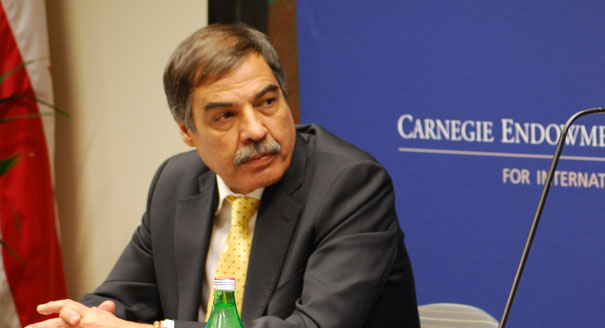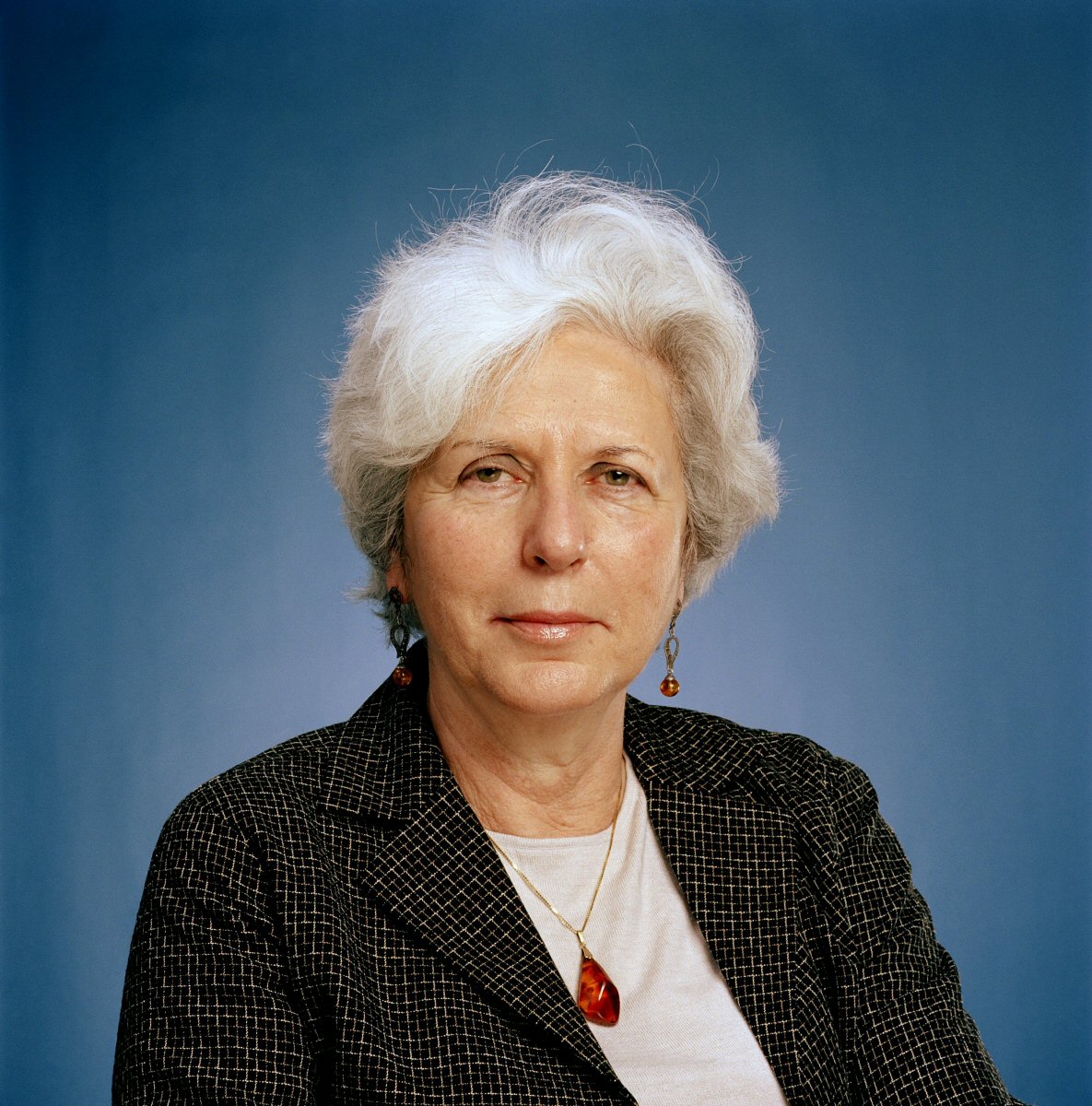{
"authors": [
"Marina Ottaway",
"Ali Tarhouni"
],
"type": "event",
"centerAffiliationAll": "dc",
"centers": [
"Carnegie Endowment for International Peace",
"Malcolm H. Kerr Carnegie Middle East Center"
],
"collections": [
"Arab Awakening"
],
"englishNewsletterAll": "menaTransitions",
"nonEnglishNewsletterAll": "",
"primaryCenter": "Carnegie Endowment for International Peace",
"programAffiliation": "MEP",
"programs": [
"Middle East"
],
"projects": [],
"regions": [
"North Africa",
"Libya",
"Maghreb"
],
"topics": [
"Political Reform",
"Economy"
]
}
Former Libyan National Transitional Council Finance Minister Ali Tarhouni
Thu, January 5th, 2012
Washington, D.C.
Former Libyan National Transition Council (NTC) Acting Prime Minister and Finance Minister Ali Tarhouni spoke about his experience with the Libyan revolution and the economic and political future of the country. Tarhouni had been exiled by the Qaddafi regime and, prior to the revolution, lived in the United States. He returned to Libya at the beginning of the uprising and played an important role in the country’s liberation. Carnegie’s Marina Ottaway facilitated the discussion.
Appreciation for the Role of NATO and the United States
Tarhouni began his remarks by expressing his elation on Libya’s new-found freedom and the great journey the country had made in a very short period of time; he also expressed his appreciation for the support received from NATO members, particularly the United States.
- Timing: The United States arranged for the no-fly zone at a time when there was “no money” in the decision, Tarhouni said. Washington could have delayed action without blame. He stated that Libyans truly appreciate the U.S. response.
- Critical Role: The NTC and Libyan rebels would have been unable to stop Qaddafi’s forces from marching on Benghazi, Tarhouni stated. NATO bombers came in at the right time and saved lives; Tarhouni contended that by doing this, they also saved the entire revolution.
Looking Forward: Reasons for Optimism
Tarhouni expressed optimism that Libya would be able to transition from a revolution to a state.
- Moderate Islam: Libyans enjoy a moderate version of Islam that emphasizes a personal relationship with God, rather than a necessarily public one, Tarhouni said.
- Sectarian Divisions: Unlike many countries in the region, Tarhouni added, Libya does not have significant sectarian divisions.
- Wealth: Libya is a wealthy nation with a very small population; many of the economic problems other nations face will not be a substantial issue for the country.
- Experience: Libya has already experimented with a form of democracy earlier in its history, paving the way for a culture of discourse in the country. Tarhouni explained that it is important to build the new Libyan government within the parameters of the country’s culture, religion, economic and social context. While there are universal human values, Libya’s form of government will not and should not necessarily mimic the American or British model, he said.
- A Model for the Region: A successful Libya will have positive ramifications for neighboring countries in the Middle East and for the relationship with the West, he added.
Looking Forward: Challenges Ahead
- The Path to Stability: Tarhouni stated that both security and political stability must be established for the success of Libya. In particular, Libya must build a national army that is professional rather than political, develop a security apparatus, and ensure the protection of the country’s borders.
- Transformation of the Economic System: Under Qaddafi, the private sector became marginalized and corrupt. For the private sector to become a key player today, a policy of rational privatization must be pursued; this would include partnering local businesses with international companies and enhancing commercial codes, Tarhouni added.
- Oil: Tarhouni expects that most oil contracts will be honored, but revisited; there are also some that may be disputed. The NTC had adopted a new policy of transparency which requires the publishing of all oil contracts, he stated.
- Disarming Rebels: Armed rebels have been given the choice to join the army or other security institutions, but Tarhouni argued that most rebels do not have military training and want to return to their previous lives. He emphasized the importance of supporting these individuals and reassuring them of the government’s strength.
- Militias: Having arms at the negotiation table would produce a lopsided dialogue, Tarhouni said. The transitional government would need to strengthen its grip and develop a national army to reassure armed militias of the government’s strength and make them more willing to disarm.
- Civil War: A civil war situation is never going to happen in Libya, Tarhouni asserted. He stressed that the revolution was fought to get rid of Qaddafi and that there is no chance that Libya will split, especially in light of the interconnectedness of its people. He added that vigilante attacks could be dangerous for the country’s stability though.
- Elections: In about six months, Libya will have elections to select the 200 members of the assembly that will draft the country’s new constitution, Tarhouni explained. The country’s citizens will then vote on the draft which will need a two-thirds majority to pass. If the draft is rejected in elections, the assembly will have 30 days to re-draft it. The remaining details and logistics for these elections have yet to be determined.
Carnegie does not take institutional positions on public policy issues; the views represented herein are those of the author(s) and do not necessarily reflect the views of Carnegie, its staff, or its trustees.
Event Speakers
Before joining the Endowment, Ottaway carried out research in Africa and in the Middle East for many years and taught at the University of Addis Ababa, the University of Zambia, the American University in Cairo, and the University of the Witwatersrand in South Africa.
Ali Tarhouni
